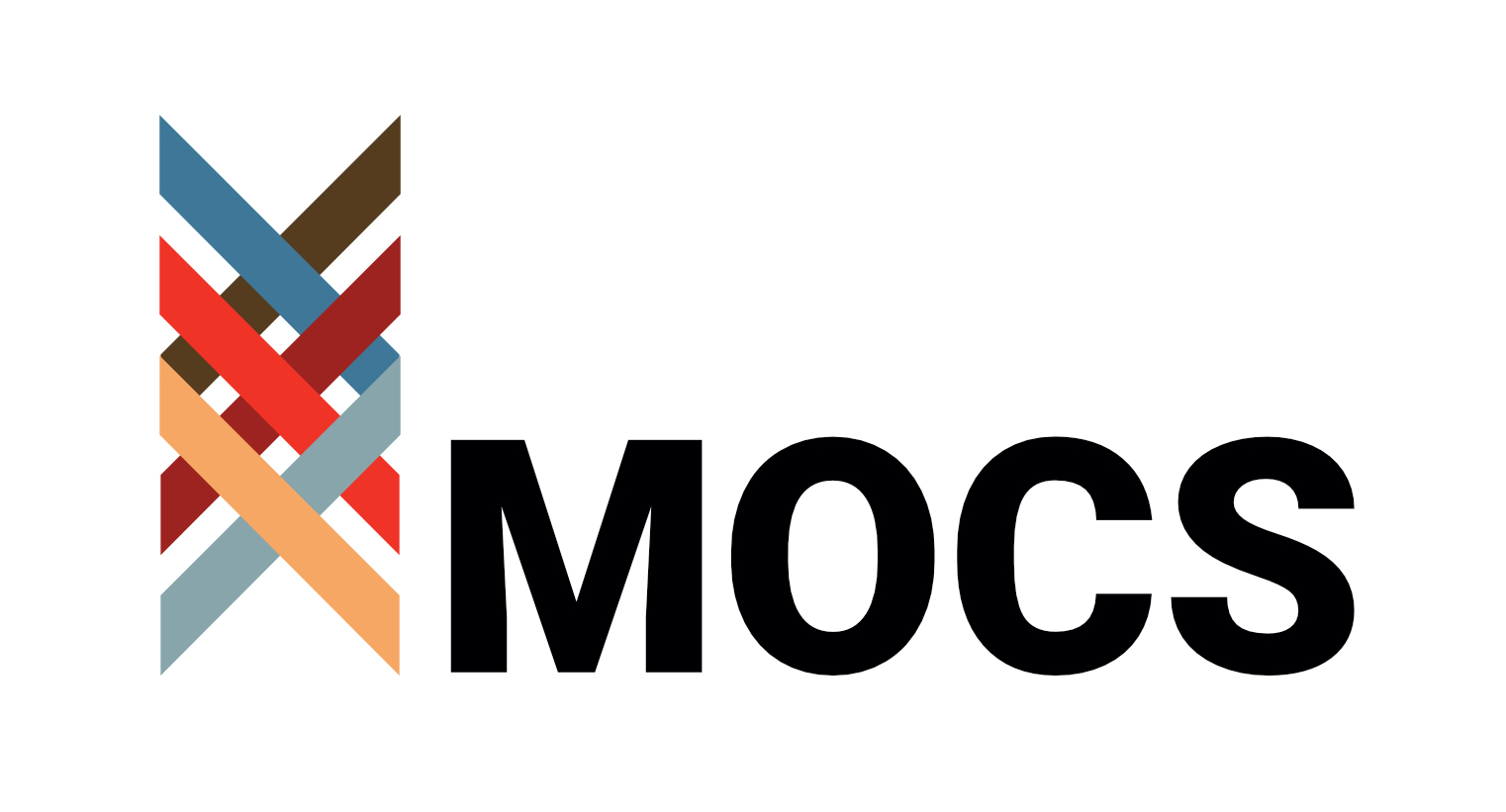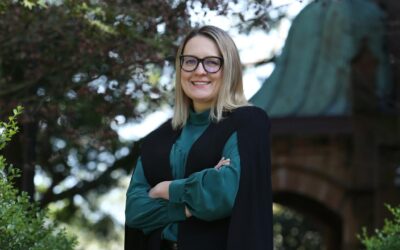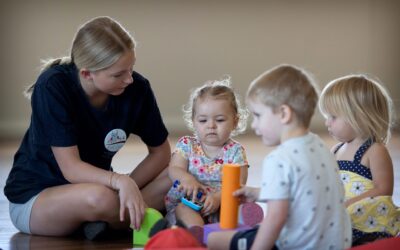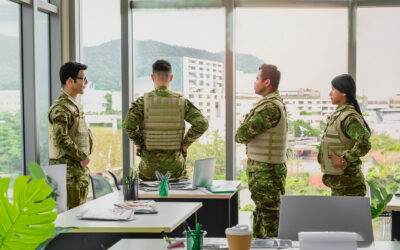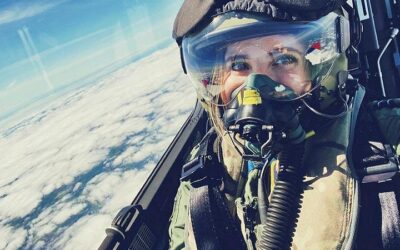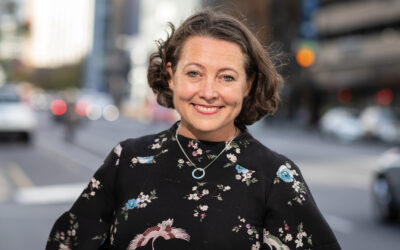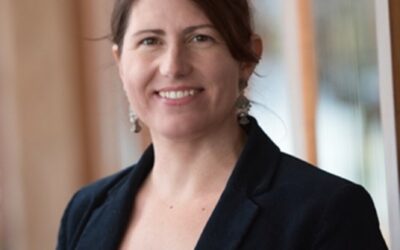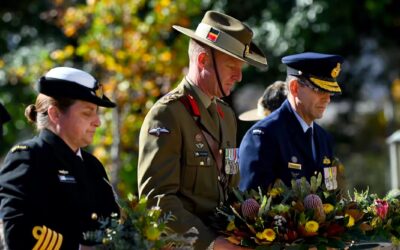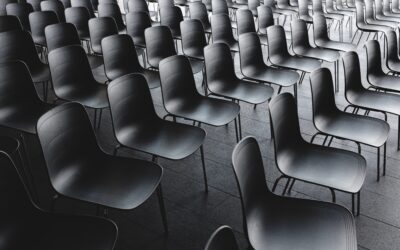NEWS
ARC Funding for MOCS Member Olga Boichak
Congratulations to MOCS member Olga Boichak on being awarded funding from the Australian Research Council for the project Digital sovereignty and colonialisms in the Russian-Ukrainian war. The Russian invasion of Ukraine is the first war in history where internet...
ADF families must be considered in the big shift north
Is the ADF an Institution or Organisation?
Over the last few decades the Australian Defence Force has started demonstrating the traits of a mainstream occupation, having progressively lost many of those traditionally associated with an institution. This article outlines the extent to which occupational traits...
Still Losing our Religion
Supporting Defence’s intellectual edge
Associate Professor Sharon Mascall-Dare
Associate Professor Sharon Mascall-Dare Adjunct Associate Professor at the University of South Australia January 2023 Congratulations to MOCS member Sharon Mascall-Dare who has been awarded Medal (OAM) of the Order of Australia in the General Division for her service...
Dr Samantha Crompvoets keynote speaker at TASA 22
ADFCAA member, Samantha Crompvoets will join Barbara Prainsack as keynote speakers at TASA 22!Social Challenges, Social ChangesIn-person conference at the University of Melbourne28 November to 2 December 2022. Inquiries: tasa2022@arinex.com.au
For many Australians, Anzac Day has been defined by a pilgrimage to Gallipoli. Can we mark the day differently?
After years of pandemic disruptions, crowds will once again be free to attend Anzac Day dawn services and veteran marches on April 25 this year. But what will public participation be like this Anzac Day? And with the decline of Anzac pilgrimages – especially to...
Conference: Sociology, Social Influence and the Grey Zone Challenge
The aim of this one-day conference is to examine how sociological theories and models can be used to better comprehend grey zone conflict. Whether using cyber, diplomatic relations, trade or foreign investment, grey zone tactics sit ambiguously between the statecraft...
Veteran suicide: Investigating the Historical and Social Dimensions.
December 2022
Associate Professor Ben Wadham
Associate Professor Ben Wadham and colleagues have been awarded over $490k by the Australian Research Council for their 3-year project that aims to develop social health and wellbeing data with veterans to inform future services tackling suicide rates and improving wellbeing.
Associate Professor Ben Wadham; Professor Sharon Lawn; Dr Margaret Hutchison; Associate Professor Udoy Saikia; Associate Professor Karl Hamner
This project supported by the Australian Research Council Funding aims to address veteran suicide by conducting an historical and cultural analysis of the ways government, the military and the community have understood, governed, and serviced veterans from 1914-present. This project will generate new knowledge, moving beyond orthodox medical and cultural assessments to explore wider historical, cultural and sociological relations of veteran suicide, including civil military relations, and the influence of the veteran sector and families and community. The project will develop an innovative survey that will form the foundation of a longitudinal social health and wellbeing dataset on veterans, and contribute to policy and service provision to reduce veteran suicide and improve their wellbeing.
Military Ethics and Industry
in Support of Military Power
Associate Professor Brad West
In this video the Australian cultural sociologist Dr Brad West examines ethical issues related to the Australian Defence Force’s increased utilisation of industry. The discussion will be informed by research in the academic fields of Armed Forces and Society and sociological theory on the values and moral codes that operate in different spheres within contemporary society. In particular, Dr West outlines the various ways that an environment for unethical conduct can unintentionally emerge from an unrefined application of market and quasi-market-type logics to the military and Department of Defence. The shift in technological expertise at the end of the Cold War from the public to the private sector means that industry is now critical to the Defence capability of nations. However, it is argued in the video that there is a need to recognise and respect the differences in culture between Defence and industry, with a failure to do so potentially resulting in an erosion of cultural identifiers that play an important role in maintaining ethical standards and limiting unethical behaviour.
Perceiving the Military Figure in Australia
Dr Cate Carter, CDLE/UniSA
This presentation is about the importance of images in the way Australians understand the military figure. Australia constructs its military identity in part from popular culture, and the military figure is situated well within Australian art, literature, film and television. These images contribute to the construction and promotion of the military ideal (known as ‘the digger’) in the Australian vernacular.
Associate Professor Brad West
December 2022
Assoc Prof Brad West recently published the article ‘Militarizing politics of recognition through Invictus Games’ in the American Journal of Culture Sociology. Examining the 2018 iteration in Sydney, West argues that the Invictus Games not only sought to demand greater respect for contemporary veterans that are wounded, injured or ill, but through societal discourses of disability, generational distinctions and cultural positivity the event provided a basis for Defence to call for a new ‘post-heroic’ societal respect for military service more generally. The article highlights the limits of these discourses for veteran wellbeing, including how they can work against successful transition and tend to silence the voices of contemporary veterans who have sought to highlight problems with military organisation and the veterans’ affairs welfare system. The Senate Foreign Affairs, Defence and Trade References Committee has invited Assoc Prof West to make a submission to its Inquiry into adaptive sports programs for Australian Defence Force. The terms of reference for the Inquiry are available on the committee’s website.
Social Influence Studies Extension
December 2022
The univeristy of South Australia in conjuction with Defence Science and Technology Group, are continuing the interdisciplinary work regarding the social influence and theories research focus. This work furthers preliminary research earlier in 2022 that resulted in the successful one-day Social Influence Symposium (find info on this via the Events tab). These continued efforts will work to map and report strategies of social influence in the greyzone and how they may be best identified and mitigated.
